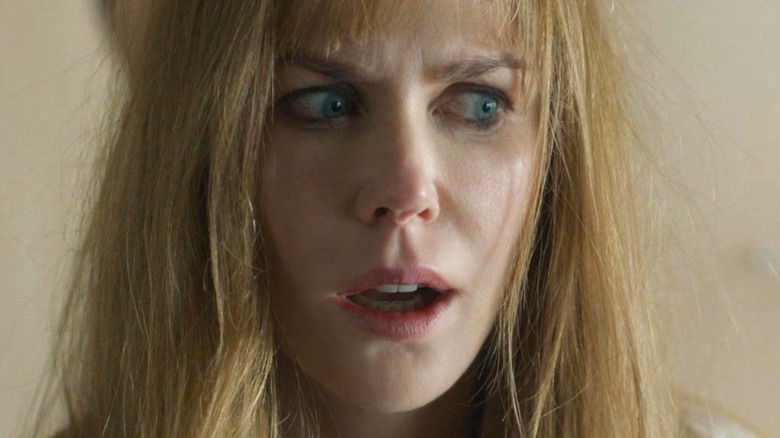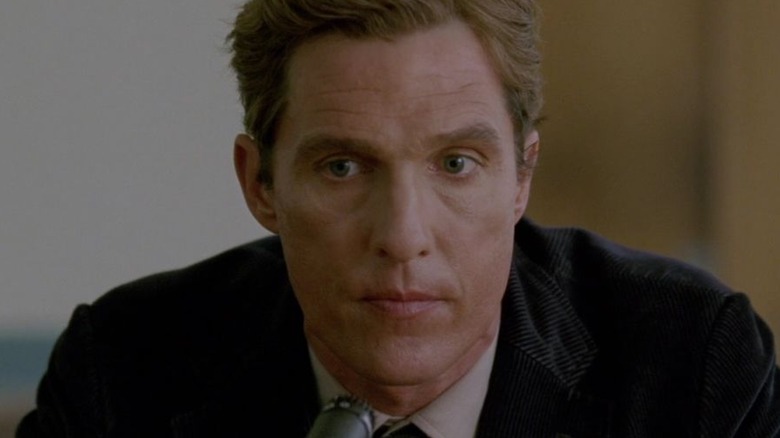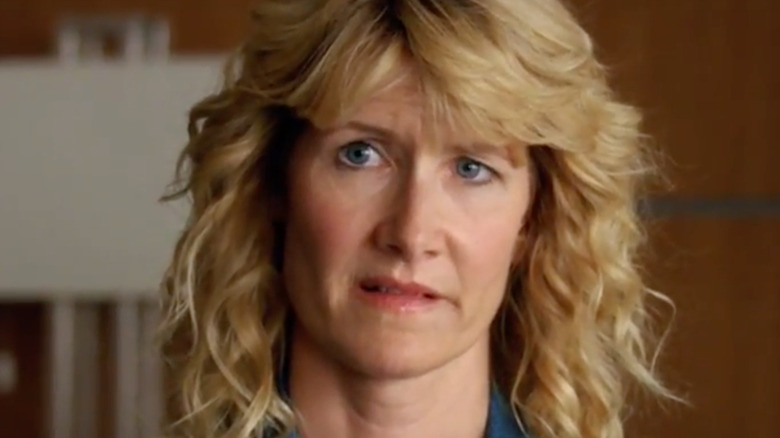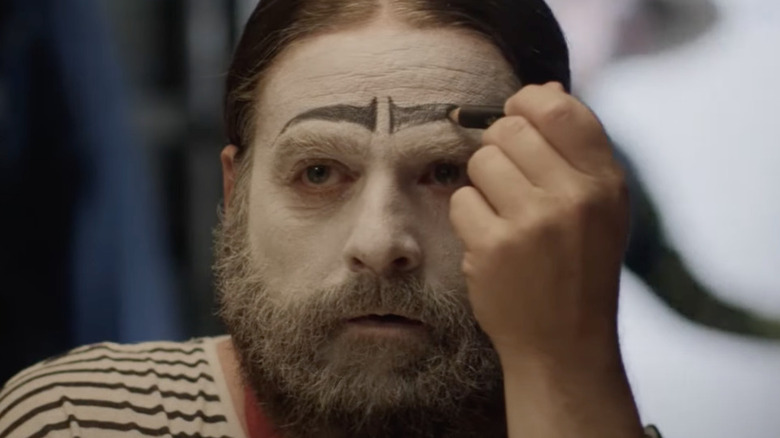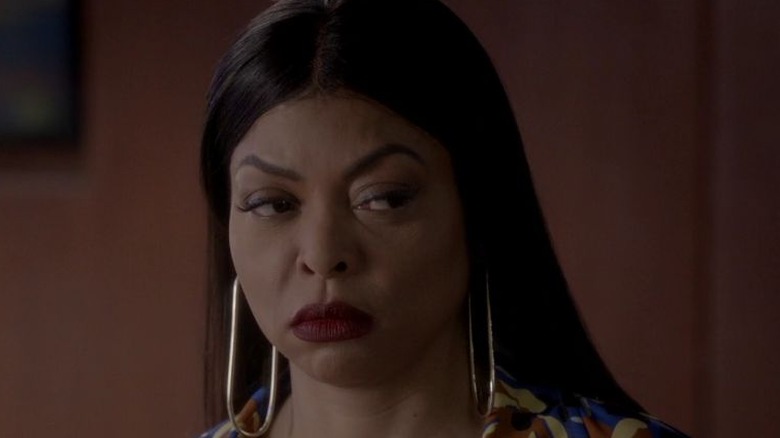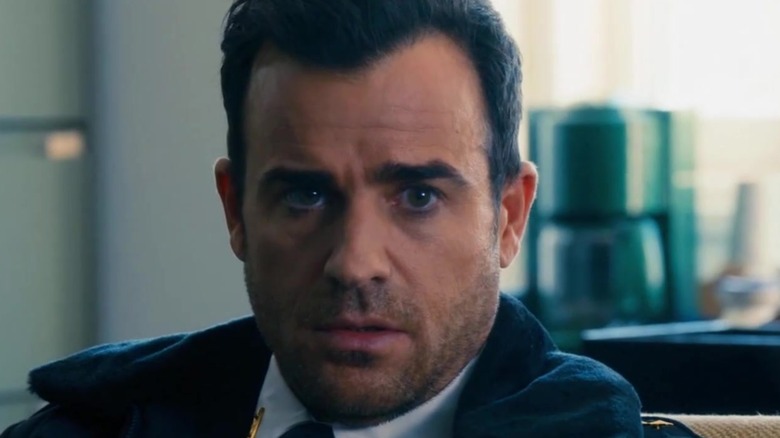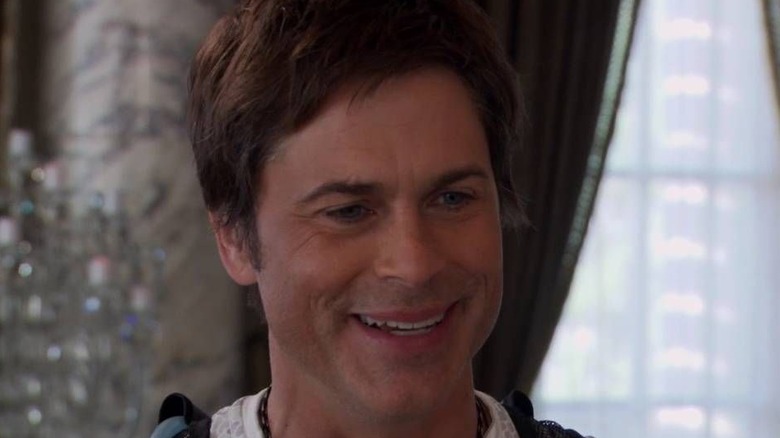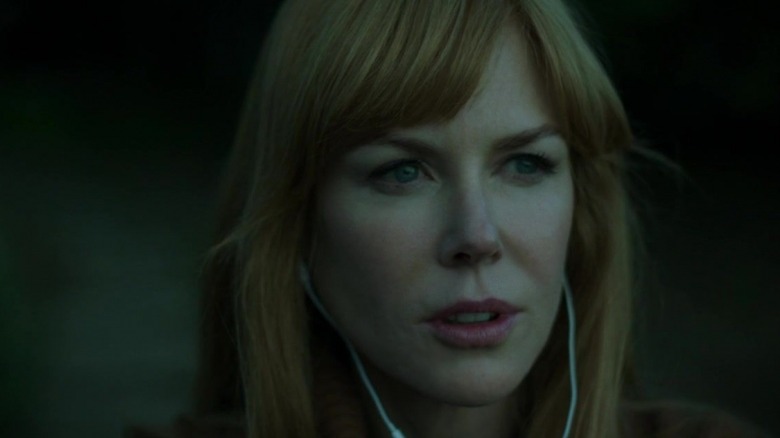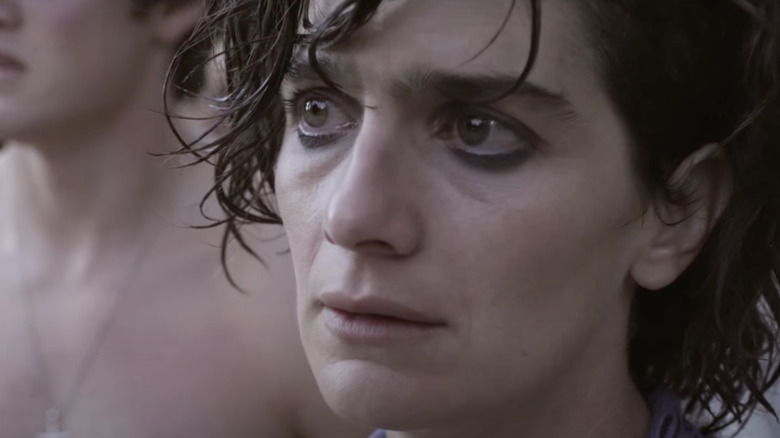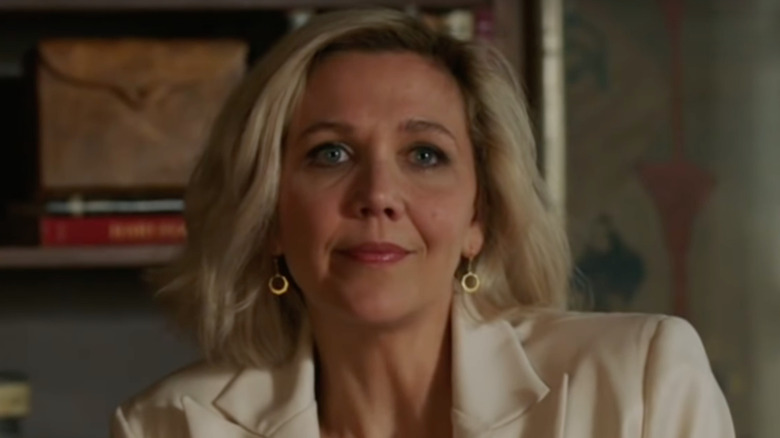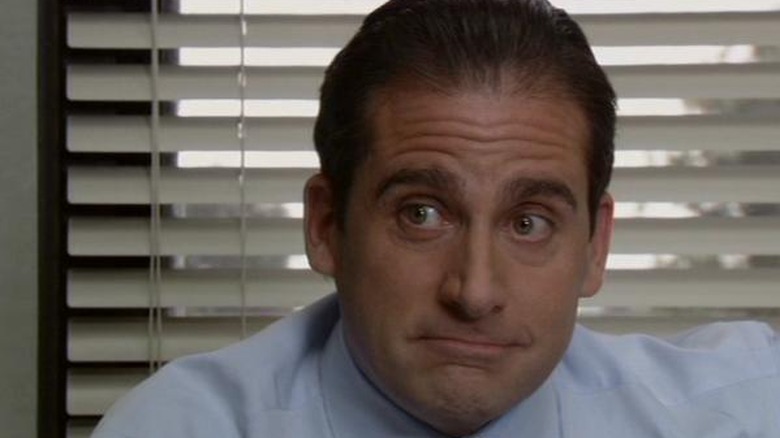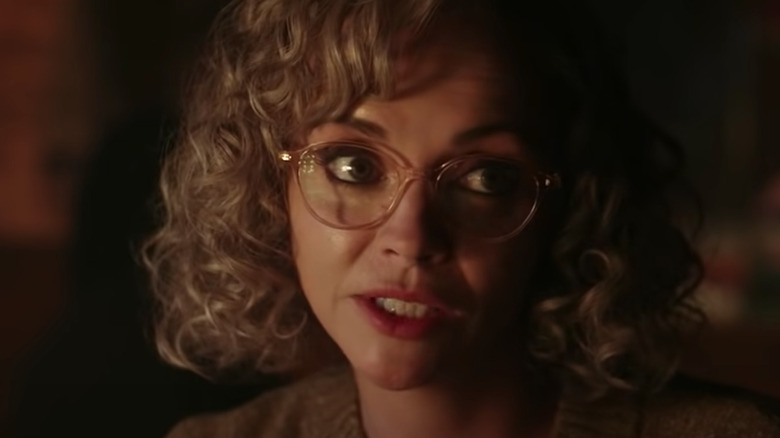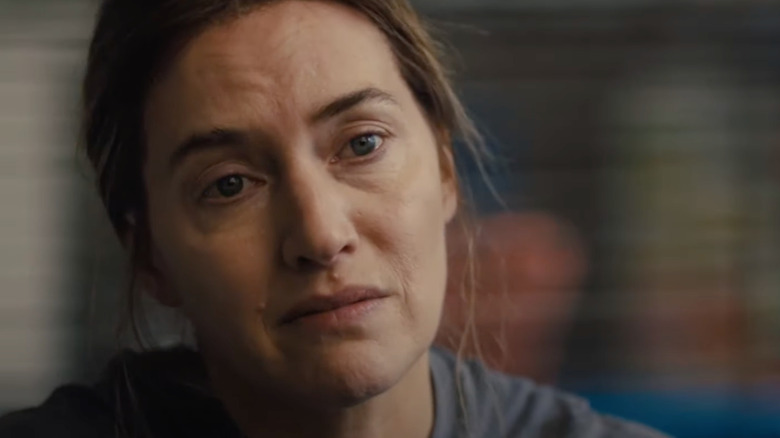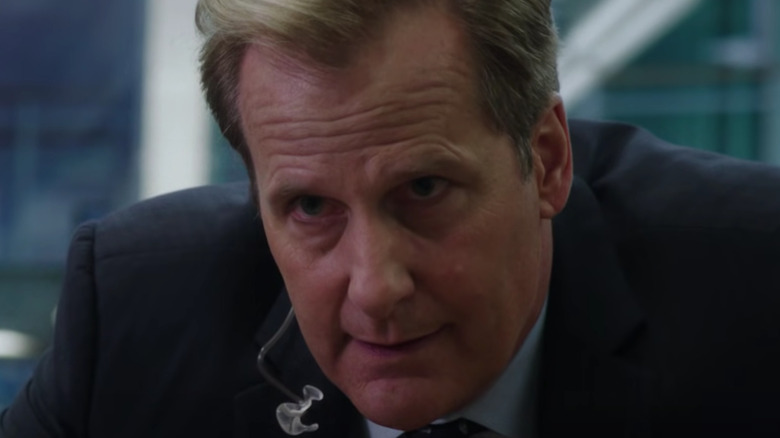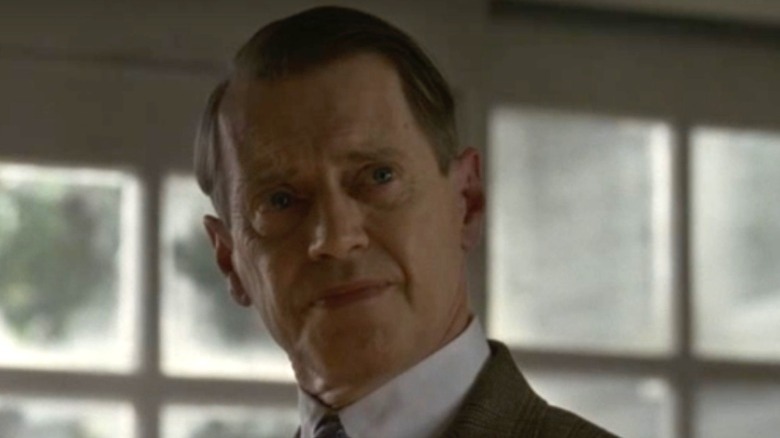Movie-First Actors Whose Best Roles Are On TV
Prior to the advent of prestige television in the 2000s that was shepherded in by HBO dramas such as "The Sopranos," actors who were lucky to find themselves propelled to movie stardom tended to do so after cutting their teeth in television. From Leonardo DiCaprio in "Growing Pains" to Michael B. Jordan in "The Wire," many of today's biggest movie stars found initial success in TV before the silver screen.
Glenn Close was an early pioneer in the progression of movie stars making TV appearances on television when she starred in FX's Damages. However, the real groundswell began in 2013 when it was announced that the now disgraced Oscar-winning actor Kevin Spacey would star in Netflix's first original streaming series, "House of Cards." Since then, many Hollywood A-list actors migrated to television, finding more creative freedom in the extended structure of the miniseries, easier financing from content-hungry streaming services, and equivalent production value and pay.
So while the following actors first earned their stature in film, their most iconic roles can be found on the small screen. Here are the movie actors whose best roles are on TV.
Matthew McConaughey in True Detective
Since his breakout performance in Richard Linklater's 1993 high school movie "Dazed and Confused," Matthew McConaughey's movie and television career can be separated into three distinct eras: genre exploration, romantic comedy, and prestige. McConaughey established himself as a dynamic actor by taking on roles in an array of genres, including family sports fantasy with "Angels in the Outfield," science fiction drama in "Contact," and crime thriller with "A Time to Kill." In the early 2000s, McConaughey found tremendous success leaning into his effortless charm starring in romantic comedies opposite Jennifer Lopez in "The Wedding Planner," Sarah Jessica Parker in "Failure to Launch," and Kate Hudson in "How to Lose a Guy in 10 Days" and "Fool's Gold."
As the 2010s encroached, McConaughey explored his darker sides and began taking roles in prestigious dramas. As the BBC reports, one of the most dramatic examples of this was when he shed nearly 50 pounds in preparation for his Academy Award-winning performance as an AIDS patient in the 1980s in the late Jean-Marc Vallée's "Dallas Buyers Club."
McConaughey kept his awards sweep going on the television circuit. He turned in one of the best performances of his career as brilliant, tortured detective Rust Cohle, who is investigating a series of grisly murders in rural Louisiana in the first season of Nic Pizzolatto's HBO crime anthology series "True Detective." McConaughey channels all three aforementioned eras of his craft in an unforgettable performance that's equal parts charismatic and foreboding.
Laura Dern in Enlightened
With a filmography as rich as Laura Dern's, it is a herculean task to pick her best. Her ongoing collaboration with David Lynch alone teems with potential options, from her breakthrough turn in the suburban nightmare that is "Blue Velvet" to her tour de force work in the mind-bending, experimental "Inland Empire." A case could even be made for her roles in the "Jurassic Park" franchise. Dern's finest work over the course of her five-decade career is always marked by a fearlessness to examine her character's less appealing, uglier sides.
She achieves this best in her performance as Amy Jellicoe in HBO's dramedy series "Enlightened," which revolves around a well-intentioned but destructive woman who suffers a nervous breakdown, attends rehab, then returns home to pick up the pieces with a new, spiritually evolved perspective. Over the course of two critically-adored but unfortunately under-watched seasons, Dern is given a broad canvas to explore Amy's unpredictable rage and paradoxical altruism.
Dern's Golden Globe-winning performance could be considered the initial phase of what Vox labeled the Dernaissance, leading to her explosive performance in "Big Little Lies" and culminating in her Oscar-winning supporting turn in Noah Baumbach's "Marriage Story."
Zach Galifianakis in Baskets
The first decade of Zach Galifianakis' movie career was comprised of thankless roles in comedies with even more thankless character names, including "Pathetic Guy," "Bus Stop Man," and "Weird Wally." Galifianakis's well-earned big break came in Todd Phillips' surprise hit 2009 raunchy comedy "The Hangover" as the quirky and unpredictable Alan. After repeatedly stealing every scene from then-better-known co-stars Bradley Cooper, Ed Helms, and Justin Bartha, Galifianakis joined comedy's A-list and inspired a perennially favorite Halloween costume.
He continued to cultivate his brand of socially awkward humor while delivering memorable turns in Alejandro González Iñárritu's Academy Award best picture winner "Birdman" and three more box office hit collaborations with Phillips, including opposite Robert Downey Jr. in "Due Date" and two more chapters of "The Hangover" trilogy. Galifianakis eventually earned an Emmy nomination when he delivered the best performance of his career in FX's criminally underrated dramedy "Baskets," playing identical twins Chip Baskets and Dale Baskets. Particularly as the ruthlessly ambitious yet delusional Chip, an aspiring artist who fails out of clown school in France and is forced to return home and accept work as a rodeo clown in Bakersfield, California, Galifianakis is in his anti-comedy element.
Taraji P. Henson in Empire
Taraji P. Henson is the epitome of a Hollywood multi-hyphenate. She's an Oscar-nominated actress, a celebrated animated voice performer, a talk show and awards show host, and a singer. Henson first gained attention for her major movie debut role in John Singleton's 2001 dramedy "Baby Boy," but her big breakthrough arrived in Craig Brewer's 2006 crime drama "Hustle & Flow," starring opposite Terrence Howard. As pregnant sex worker Shug, Henson granted viewers a first glimpse at the signature blend of tough love and biting wit that would define her roles for years to come.
Her career soared to new heights when she was cast in David Fincher's gothic fantasy drama "The Curious Case of Benjamin Button," earning an Academy Award nomination for her tender, warm performance as Benjamin's adoptive mother. However, it was not until Henson reunited with "Hustle and Flow" her co-star Terrence Howard in FOX's soapy music business drama series "Empire" that she delivered the performance of her career as Cookie Lyon, the ex-wife of hip hop record label mogul Lucious (Howard).
Henson delivered an electrifying performance as Cookie, wisely played as if Lady Macbeth was cast on a "Real Housewives" franchise, earning three Primetime Emmy Award nominations and one Golden Globe win over the course of six seasons.
Justin Theroux in The Leftovers
Before Justin Theroux became the successful movie star and screenwriter who could effortlessly seesaw between satirical comedy in "Zoolander" and crime drama in "The Girl on the Train," his first big screen moment happened in 1997's beloved comedy "Romy and Michele's High School Reunion." As noted by Bustle, a brief scene played opposite Janeane Garofalo illustrates Theroux's capacity to serve smoldering heat and the impeccable timing necessary to hold his own among his comedian co-stars. Theroux went on to perfect the trope of the entitled jerk, delivering strong supporting performances as a 1980s yuppie investment banker in "American Psycho" and a petulant director whose control over his film is being stolen by the mob in "Mulholland Drive."
However, it was not until Damon Lindelof's epic masterwork "The Leftovers" debuted on HBO in 2014 that we were shown the full scope of Theroux's range as an actor. As the tortured police chief Kevin Garvey, Theroux delivers the best work of his career. His steady performance grounds the sprawling epic drama as it evolves beyond a bleak story of family trauma in Season 1 to something scratching at the philosophical cosmos in its third and final season, ending up as the best-reviewed show of the 2010s.
Rob Lowe in Parks and Recreation
Rob Lowe's storied career as an actor began in the 1980s when he got his big break playing disaffected bad boys in coming-of-age dramas with his Brat Pack peers, like Francis Ford Coppola's adaptation of S. E. Hinton's novel "The Outsiders" and Joel Schumacher's "St. Elmo's Fire." Over the following 30 years, Lowe has found him performing in seemingly every corner an actor could find in the entertainment industry. His roles have ranged from slapstick comedy in "Wayne's World," "Tommy Boy," and the "Austin Powers" trilogy to revered TV drama on "The West Wing" and the movie "Drew Peterson: Untouchable."
Still, his best role came when he joined NBC's "Parks and Recreation" in Season 2 as Type A fitness fanatic Chris Traeger, who may or may not be responsible for the proliferation of people saying "literally" literally all the time. Chris gives Lowe the vessel to share his best qualities as an actor, playing the unwaveringly optimistic, perpetually upbeat city manager with an endearing charm without ever feeling oppressive — something perhaps nobody else but Lowe could do.
Nicole Kidman in Big Little Lies
After cultivating an impressive career in Australian movies as a teenager, Nicole Kidman attained international fame with Tony Scott's 1990 action thriller "Days of Thunder," the first in a series of roles she starred opposite her then soon-to-be — and later ex — husband Tom Cruise. Over the ensuing three decades, Kidman proved herself as a versatile movie star, earning four Academy Award nominations ("Moulin Rouge!," "Rabbit Hole," "Lion," and "Being the Ricardos") and one win ("The Hours").
These five roles could not be more different, but Kidman's performances always rely on a delicate balance of raw vulnerability and poise, best exemplified in her unforgettable turn as retired lawyer Celeste Wright in HBO's "Big Little Lies." Celeste appears to lead the perfect life with her wealthy family in picaresque Monterey, California. But beneath the aspirational veneer lies the awful secret that she's being abused by her husband. Kidman rightfully swept the television awards season for fearlessly depicting the horrors Celeste endures with complexity and contradiction rarely seen in portrayals of domestic violence.
Gaby Hoffman in Transparent
Gaby Hoffman first attained success in acting as a child and achieved the difficult feat of sustaining it through adolescence and, now, well into her adulthood. She made a name for herself in her earliest performances opposite Kevin Costner and Amy Madigan in the baseball drama "Field of Dreams" and the late John Candy in "Uncle Buck." As Hoffman entered her teenage years, she continued taking roles in big-budget films like disaster-thriller "Volcano" but also in independent films like "200 Cigarettes" and "You Can Count On Me."
These latter roles would eventually lead her to an illustrious, Emmy-nominated career in high-brow comedy television, including a hilarious supporting turn on HBO's comedy "Girls" and the performance of her career on Amazon's groundbreaking dramedy "Transparent." As the ever-restless Ali Pfefferman, the youngest sibling of the Los Angeles Pfefferman clan, Hoffman is a revelation. She infuses her confrontational and prickly yet sensitive character with open-hearted grace as Ali yearns to understand their familial legacy and their place within that lineage.
Maggie Gyllenhaal in The Deuce
Maggie Gyllenhaal has come a long way since her first parts in several films by her father, Stephen Gyllenhaal, and starring opposite her brother in science fiction cult favorite "Donnie Darko." With a diverse list of roles, including enormous blockbusters like "The Dark Knight," indie sensations such as "Secretary," and the award-winning drama "Crazy Heart," Gyllenhaal is a multifaceted performer. In 2021 she added screenwriter and director to her credits with the critically adored adaptation of Elena Ferrante's novel of the same name, "The Lost Daughter," earning numerous debut director awards.
Despite her burgeoning success behind the camera, her finest role in front of it remains her performance as sex worker turned pornographic filmmaker Eileen Merrell (who goes by Candy) in HBO's 1970s set drama "The Deuce." Gyllenhaal portrays Candy with a cunning dignity that is unfortunately seldom afforded to sex worker characters, heightening the emotional stakes as she quits the streets to work on film sets. You cannot help but be moved as she attains the power, financial security, and autonomy she has fought for since we first met her.
Steve Carell in The Office
Steve Carell's first movie credit was a small role as a pompous waiter who never speaks in John Hughes' 1991 "Curly Sue." The family comedy struggled at the box office and did Carell's burgeoning movie career no favors in its infancy, as it remains his worst-rated movie. Over a decade later, in 2004, Carell was hurled into major movie stardom with his first major film performance in Adam McKay's smash hit satire-comedy "Anchorman: The Legend of Ron Burgundy." As Brick Tamland, the eccentric meteorologist with an IQ of 48, Carell introduced his comedic specialty to the world: the cringey, hapless fool.
He went on to perfect this style in several film roles including his first leading role in Judd Apatow's "The 40-Year-Old Virgin," but he reached his apex in his iconic turn as Michael Scott on NBC's "The Office." Carell had big shoes to fill in the American adaptation of the celebrated BBC original. After closely mimicking Ricky Gervais' character David Brent in the premiere season, Carell infused Michael Scott with more empathetic qualities, making him one of the more endearing — if incompetent — sitcom characters in recent memory. Even as he shifts to more dramatic roles, it is difficult to imagine Carell ever topping Michael Scott.
Christina Ricci in Yellowjackets
Until the fall of 2021, it seemed as though Christina Ricci's heyday was in the rearview mirror. She quickly rose to prominence as a young girl with a string of successful 1990s family movies, including "The Addams Family" and its sequel "The Addams Family Values," "Casper," and "Now and Then."
Ricci went on to more adventurous, challenging roles as elusive heroines in darker films, acquiring indie clout for her excellent turns in Don Roos' black comedy "The Opposite of Sex" and Vincent Gallo's bleak, surrealist drama "Buffalo '66." Her movie career persevered through the rest of the 1990s, but Ricci began to repeatedly get overshadowed by her co-stars, from Johnny Depp in Tim Burton's "Sleepy Hollow" to Charlize Theron in "Monster."
After a few movie flops and a canceled leading role in ABC's short-lived drama series "Pan Am," Ricci turned to the small screen, taking on television roles as complicated, real women such as Zelda Fitzgerald, Nellie Bly, and ax-wielding Lizzie Borden. These latter roles prepared Ricci for the best role of her career as sociopath nurse Misty in Showtime's hit cannibal drama "Yellowjackets." As Misty, Ricci is given free rein to play her greatest assets as an actress, fusing the wholesome innocence of her early work with the creepy, menacing qualities of her later performances.
Kate Winslet in Mare of Easttown
Kate Winslet is a chameleon of an actress with a penchant for taking chances. She wisely chose roles early on in her career that have both demonstrated her range and prevented her from being type-cast. She followed her audacious debut as a murderous teenager in Peter Jackson's "Heavenly Creatures" by tackling Jane Austen in "Sense and Sensibility," Shakespeare in 1996's "Hamlet," and next, "Titanic," where she played the iconic Rose. Despite the fame that "Titanic" bestowed on Winslet, she continued to choose challenging roles, racking up seven Oscar nominations and an overdue win for "The Reader."
Her performance in "Eternal Sunshine of the Spotless Mind" is her strongest work in film, but the best — and most challenging — role of her career can be found on the smaller screen in HBO's mystery miniseries "Mare of Easttown." As a dogged suburban Philadelphia detective investigating a murder in her hometown, Winslet delivers a masterclass performance, showcasing her finest skills as an actress — particularly her ability to mine pathos and humor from the darkest of circumstances. Winslet rightfully went on to sweep TV awards season, winning best actress prizes from the Screen Actors Guild, the Golden Globes, Critics Choice, and the Primetime Emmys. This is a performance that lingers with you long after the case is solved.
Jeff Daniels in The Newsroom
Although his presence in movies has subsided in recent years, Jeff Daniels is a consistent standout in all his projects — from distinguished dramas "Pleasantville" and "Steve Jobs," to, ah, less distinguished fair in "Dumb and Dumber" and "Dumb and Dumber To."
Over his four-decade career, Daniels has proven he can handle roles in any genre, first emerging on the big screen in Miloš Forman's 1981 period drama "Ragtime" in a minor part as a police officer. Two years later, Daniels career took flight following the release of James L. Brooks' beloved Academy Award-winning hit family dramedy, "Terms of Endearment," in which he played financially unsavvy Flap, a young, impulsive college professor who marries the vivacious Emma (Debra Winger).
As Flap, Daniels embraced his strong ability as a performer to embrace the inherent messiness of his characters' lives. He perfected this approach in his most impressive movie performance in Noah Baumbach's 2005 dark comedy "The Squid and the Whale" as a pretentious, jealous English professor who is in denial about his family falling apart. These roles prepared Daniels to deliver the performance of his career in Aaron Sorkin's love-it-or-hate-it HBO drama series "The Newsroom." There, Daniels starred as infamously difficult television anchor Will McAvoy, delivering Sorkin's monologues with a hair-raising intensity that is part Shakespearean performer, part carnival barker. Daniels plays blistering, provocative McAvoy with the perfect amount of sympathy to render him human, earning three Emmy nominations and one win for his bravado work.
Steve Buscemi in Boardwalk Empire
Steve Buscemi's prolific movie career blossomed with his first in a series of collaborations with Joel and Ethan Coen in 1990's tremendous gangster drama "Miller's Crossing." Over the next 16 years, Buscemi and the Coen brothers have worked together in four feature films — "Barton Fink," "The Hudsucker Proxy," "Fargo," "The Big Lebowski" — and one short, "Tuileries," in the "Paris, je t'aime" anthology. Buscemi's work in the Coen's oeuvre and his role as Mr. Pink in Quentin Tarantino's "Reservoir Dogs" honed his reputation as one of the greater character actors of all time.
Buscemi showed a radically different side of himself as a performer in Terry Zwigoff's offbeat masterpiece "Ghost World" as Seymour, a gentle, harmless jazz enthusiast loner who becomes the morbid fascination of disaffected recent high school grad Enid (Thora Birch). He kept the surprises coming when he turned to television for the best role of his career — a much deserved leading one, finally — in Terence Winter's HBO prohibition drama "Boardwalk Empire." Buscemi is mesmerizing as corrupt Atlantic City treasurer Nucky Thompson, employing the unpredictable, menacing qualities of his Coen characters while in complete command of his craft.
